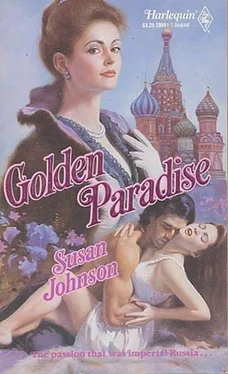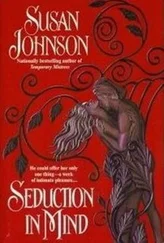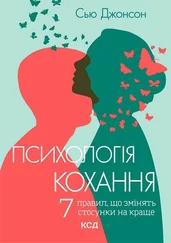As the autumn sun shone feebly from its midpoint, a silence began to gather, a silence of dead men and victory, a silence of exhaustion and weary triumph, a silence of Turkish defeat and hesitant Russian hope. The Russian cries began sporadically then, small rejoicing hurrahs from parched throats, exhalations of personal good fortune from men too tired to shout, smiles exchanged with adjacent comrades-in-arms. They had won, they began to realize. The Tsar's army had gained the impregnable, the unconquerable citadel of Islam and its defenders were vanquished. Hurrah! Hurrah! Hurrah!
But only minutes after the roars of victory rose into the chill air, the shouting triumph died away and a still and utter quiet fell over the Russian army. Rumor spread like wildfire through the ranks, the awful news greeted everywhere with breath-stopping despair. The White General, the Field Marshal's admirable son, the Tsar's favorite young general was dead. After the barricades into the city had been breached by his single-handed effort, he'd been slaughtered in an assault of superior numbers, his faithful Kurds fighting with him to the death. Before he could claim victory for having defeated the Sultan's army of the east, he'd fallen.
At first they couldn't believe it. The Prince was never even wounded in battle. It wasn't true, and soon he'd appear to discount the dreadful rumors. But then the fires broke out, set off perhaps by the artillery fire, and when the munitions' dump ignited, half the western escarpment exploded into the sky. The winds picked up the red-hot ashes and the citadel was aflame in less than an hour.
When the blazing inferno was under some control a day later, the awful truth was finally accepted. Prince Bariatinsky must be dead. He might have survived the battle, but no one could have survived the explosion and the apocalyptic fire.
The Empire had paid a grievous price for its victory over the Turks. Many said it was too great; Kars wasn't worth Prince Bariatinsky's life. The Tsar was said to have cried when news of Stefan's death was telegraphed to Saint Petersburg. He shut himself away for half a day, not allowing even his dearest Catherine to breach his solitude, and when he emerged, his courtiers thought he'd aged ten years.
An hour later the church bells began their sorrowful dirge, from Saint Petersburg to Baku, from Odessa to the emptiness of the Siberian tundra. Throughout the Empire of the Tsar, Stefan Bariatinsky's death was mourned.
Lisaveta went pale when she heard the mourning bells begin to ring, their pealing measured dirge carried on the twilight air up from the valley below, from the thirty-odd churches and bell towers, like a personal message of disaster. Without reason or thought, without need for clarification-for Stefan himself had sensed what lay ahead-she knew… before the Viceroy came. She knew for whom the bells tolled, as though their mournful clamor were directed toward the white marble palace overlooking Tiflis. He's dead…clang, clang, they rang. The Prince is dead…clang, clang. The Prince is dead and dead and dead, clang, clang.
Later in the formal drawing room, Militza sat beside Lisaveta and held her hand as the Viceroy told them what he knew of Stefan's death. The details were still sketchy but Kars had been taken, thanks to Stefan's rallying charge. The citadel was aflame in areas so his body had not yet been recovered, but eyewitnesses had seen him and the last of his Kurdish warriors overrun by a Bazhi attack. Militza asked the necessary questions because Lisaveta found it difficult to respond graciously to a man Stefan had despised.
"Thank you, Prince Melikoff," Militza said at last with a cool dignity that rose to Melikoff's sad and awkward mission, "for bringing us what news you have."
"The archbishop is planning a memorial service tomorrow if you ladies feel able to attend," he mentioned on rising to leave.
"Thank you, we shall," Stefan's aunt replied. "Stefan is a hero to this city."
"To the Empire," the Viceroy added, his manners impeccable.
Lisaveta could no longer conceal her despair. She sobbed openly, fresh tears streaming down her face.
"If you'll excuse us," Militza softly said.
That night Lisaveta slept on Stefan's bed surrounded and atop Stefan's clothes, which she'd carried from his wardrobe. She'd taken scores of his garments and piled them on his bed. His scent lingered in the linen and silk and fine wools, and she'd curled into a pitiable cocoon of misery, snuggling deep into the familiar fragrance of the materials as an injured animal burrows deep into its den to nurse its wounds.
She'd understood on a rational level that men died in battle; she'd even dealt with the fearful possibility of Stefan's death in battle since he'd gone. Or she'd thought she had. She'd known he was celebrated for his daring and bravado, that he wore his white Chevalier Gardes uniform as a taunt to his enemy, as a badge of his own courage… and he'd run the risk for years.
But until this awful moment she hadn't understood the bottomless depths of despair; she hadn't realized it would hurt to breathe, that every second of the day or night she would think, I'll never see him again, never touch him again or laugh when he laughs or know someday he'll come walking through the door again.
And he never would now.
She was so empty inside that she felt as if her own spirit and soul had departed, too. Thoughts of heaven or paradise or God's mercy didn't help or offer any solace because no philosophy, no matter how benevolent, could ever replace Stefan in her life.
Militza did her best to comfort her through the long hours of the night. Her first husband had died in wartime and she understood the desperation of Lisaveta's loss, but she knew too that the time for condolence was later. The grieving came first, the inexorable anguish and pain and tears.
Her own sense of loss was sacrificed for some future time when she could mourn her beloved nephew away from Lise. Stefan's wife needed her strength and comfort now, not her tears. Thank all the angels in heaven that Lisaveta would have Stefan's child to love, Militza thought, although in her present stricken state of hopelessness she was too distrait to find solace in that fact.
"I want to die, too," Lisaveta murmured, lying in Stefan's bed, too pale and quiet, her voice detached somehow as though she'd partially left the world already.
"No," Militza said simply, offering no argument or banal commonplace. "I won't let you," she finished, her dark Orbeliani eyes fierce with determination. Stefan had left his wife and child in her trust and she wouldn't fail him. "Your baby needs you," she gently added.
"I can't even feel the baby," Lisaveta whispered. She was now certain there would be one, but despair overwhelmed her. "Maybe it died, too."
"Nonsense," Militza replied, her voice soothing despite her emphatic denial. "It's too early to feel the baby… Stefan's baby," she added, taking Lise's ashen face tenderly between her hands. "Stefan's baby," she whispered, willing herself not to cry. "The baby he wanted so much… Do you know what he ordered before he left for Kars?" Militza began talking then of the plans Stefan had made for the baby. He'd ordered toys in Saint Petersburg, given carte blanche to Madame Drouet for a layette, left instructions for the estate carpenters to add a rocking horse to the nursery like the one he'd had as a child. The Tsar's physician had been retained for the months before Lisaveta's delivery and would be arriving in Tiflis soon after the new year. He'd even said he wanted a grove of cypress planted when the baby was born to commemorate its birth.
Her words seemed to rouse Lisaveta from her lethargy so she continued speaking, telling her of Stefan's childhood, of his first words and toddling steps, of his favorite puppy and pony, how he'd learned to ride almost before he'd learned to walk. She spoke of the way he thrived on competition and soon could outride, outfight, outswim and outrun all the other young warriors. She described Stefan's love for Tiflis and the population's adoration of their Prince. He conversed with everyone when he went down into the city, Militza said, stopping in the cafes or talking to the people in the street. There were times his strolls took on the look of a parade. She depicted Stefan at length in all the varied facets of his life because her conversation kept Lisaveta from drifting away, because each word she uttered seemed to bring her back from the void of her wretchedness, because each memory and reminiscence of Stefan made him more alive and less dead, and the images could be added to Lisaveta's own loving memories of her husband.
Читать дальше












